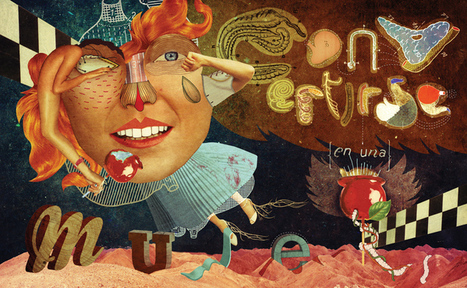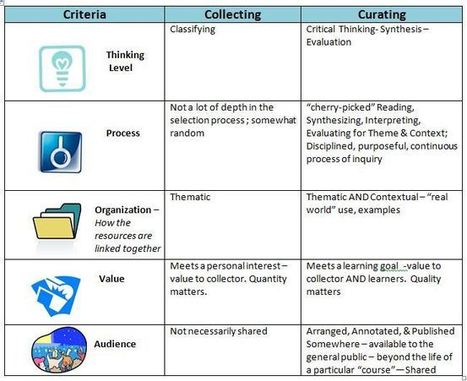Robin Good: Must-read article on ClutterMuseum.com by Leslie M-B, exploring in depth the opportunity to have students master their selected topics by "curating" them, rather than by reading and memorizing facts about them.
"Critical and creative thinking should be prioritized over remembering content"
"That students should learn to think for themselves may seem like a no-brainer to many readers, but if you look at the textbook packages put out by publishers, you’ll find that the texts and accompanying materials (for both teachers and students) assume students are expected to read and retain content—and then be tested on it.
Instead, between middle school (if not earlier) and college graduation, students should practice—if not master—how to question, critique, research, and construct an argument like an historian."
This is indeed the critical point. Moving education from an effort to memorize things on which then to be tested, to a collaborative exercise in creating new knowledge and value by pulling and editing together individual pieces of content, resources and tools that allow the explanation/illustration of a topic from a specific viewpoint/for a specific need.
And I can't avoid to rejoice and second her next proposition: "What if we shifted the standards’ primary emphasis from content, and not to just the development of traditional skills—basic knowledge recall, document interpretation, research, and essay-writing—but to the cultivation of skills that challenge students to make unconventional connections, skills that are essential for thriving in the 21st century?"
What are these skills, you may ask. Here is a good reference where to look them up: http://www.p21.org/storage/documents/P21_Framework_Definitions.pdf (put together by the Partnership for 21st Century Skills)
Recommended. Good stuff. 9/10
Full article: www.cluttermuseum.com/make-students-curators/
(Image credit: Behance.net)
Via Robin Good, Paul Thielen



 Your new post is loading...
Your new post is loading...












How to turn students into curators.
We often ask our students to create annotated bibliographies, and this focuses on their capacity to evaluate and make decisions about the validity, reliability and relevance of sources they have found. using Scoop.it, we can ask them to do much the same thing, but they will publish their ideas for an audience, and will also be able to provide and use peer feedback to enhance and tighten up their thinking. This is relevant to any curriculum area. Of course it is dependent on schools being able to access any social media, but rather than thinking about what is impossible, perhaps we could start thinking about what is possible and lobbying for change.
We often ask our students to create annotated bibliographies, and this focuses on their capacity to evaluate and make decisions about the validity, reliability and relevance of sources they have found. Using Scoop.it, we can ask them to do much the same thing. But they will publish their ideas for an audience, and will also be able to provide and use peer feedback to enhance and tighten up their thinking. This is relevant to any age, and any curriculum area. Of course it is dependent on schools being able to access social media. But rather than thinking about what is impossible, perhaps we should start thinking about what is possible, and lobbying for change. Could you use a Scoop.it collection as an assessment task?